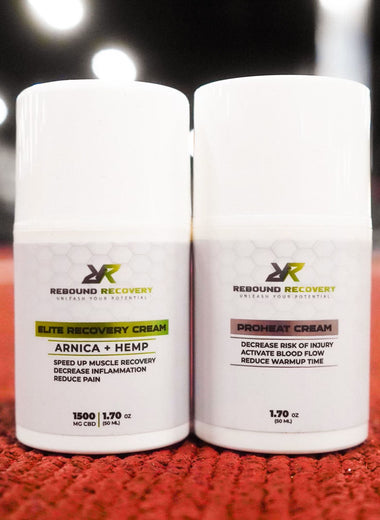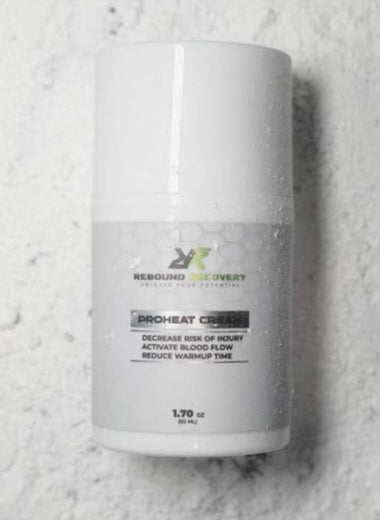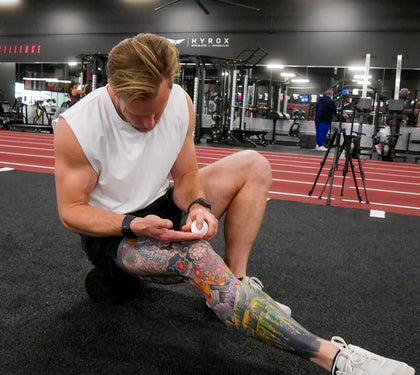Most Athletes Warm Up Wrong—Here’s How to Do It Better
You stretch, maybe jog a little, and then jump into your workout. But here’s the truth: warming up isn’t just about moving—it's about preparing your muscles to perform. And if you’re not using a natural-based warming cream before your workouts, you might be leaving performance (and protection) on the table.
Whether you're a runner, cyclist, lifter, or endurance athlete, a properly applied warming cream can help you increase circulation, reduce stiffness, and prevent injury—naturally.
Let’s break down why warming up matters, how natural-based warming creams work, and how to use them for maximum performance and protection.
Why Warming Up Matters More Than You Think
Warm-ups aren’t optional. They prepare your body for movement by:
-
Increasing circulation to working muscles
-
Elevating muscle temperature, making fibers more flexible
-
Reducing stiffness, which lowers injury risk
-
Enhancing range of motion, so your body can move more efficiently
Skipping a proper warm-up can lead to:
❌ Muscle pulls
❌ Reduced output
❌ Slower recovery
A natural-based warming cream accelerates this process—helping your body get workout-ready faster.
What Is a Natural-Based Warming Cream?
A natural-based warming cream uses plant-based, non-synthetic ingredients to create a gentle, controlled warming sensation that activates muscles before training.
Instead of relying on harsh chemicals or artificial heating agents, natural formulas use ingredients that:
✅ Stimulate blood flow
✅ Reduce muscle stiffness
✅ Prepare tissue for movement
Key Ingredients That Power Natural-Based Warming Creams
🌶️ Cayenne Pepper (Capsaicin)
-
Boosts circulation by increasing blood flow to muscles
-
Creates a warming effect that loosens tight areas
-
Helps reduce pain sensitivity during exercise
🌿 Arnica
-
Naturally reduces muscle stiffness and swelling
-
Supports mobility and joint flexibility
-
Aids recovery post-training
🟡 Turmeric
-
Contains curcumin, a natural anti-inflammatory
-
Reduces joint and muscle inflammation
-
Supports performance in high-stress workouts
🌱 Organic Hemp Extract
-
Helps relax muscle tissue
-
Supports deeper tissue prep pre-workout
-
Complements mobility and range-of-motion training
Why Choose Natural Over Synthetic?
Many traditional warming creams use synthetic compounds like menthol or petroleum-based ingredients to simulate a warming effect—but they often come with downsides:
❌ Harsh on skin
❌ Strong artificial smells
❌ Temporary “numbing” instead of real warming
❌ No long-term recovery benefit
Natural-based warming creams are:
✅ Skin-safe
✅ Free of synthetic irritants
✅ Effective for both warm-up and recovery
✅ Backed by science, powered by nature
How to Use a Warming Cream Before Training
💡 Timing: Apply 10–15 minutes before your workout.
💡 Target Areas: Focus on calves, hamstrings, quads, glutes, lower back, and shoulders—wherever you tend to feel tight or stiff.
💡 Application Tips:
-
Use a thin, even layer
-
Massage in fully until absorbed
-
Avoid broken skin or sensitive areas
Pro Tip: Pair with light dynamic stretches or mobility work to supercharge your warm-up.
Who Should Use a Natural Warming Cream?
✅ Runners & Cyclists – Prep muscles for long miles and reduce joint strain
✅ Strength Athletes – Warm up tight hips, shoulders, and knees before lifting
✅ CrossFit & HIIT Athletes – Improve mobility and reduce stiffness under intensity
✅ Weekend Warriors – Loosen up faster and reduce post-workout soreness
The Bottom Line: Warm Up Smarter, Perform Better
Your warm-up sets the tone for your entire session. A natural-based warming cream helps your muscles get there faster—without synthetic shortcuts or harsh chemicals.
✅ Boost circulation
✅ Loosen tight muscles
✅ Reduce injury risk
✅ Support performance and recovery
Train hard. Warm up smarter. Recover naturally.





